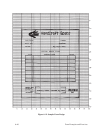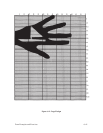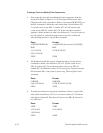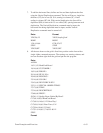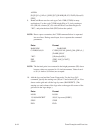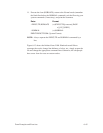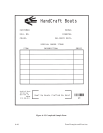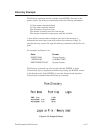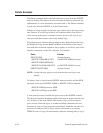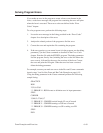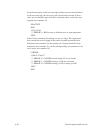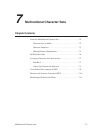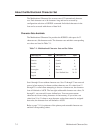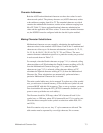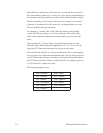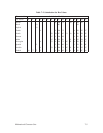
Form Examples and Exercises6–48
Delete Example
The Delete command deletes any individual form or logo from the IGP/PGL
memory module. The deletion of a form includes its directory entry and any
alphanumeric or vector information associated with it. The Delete command
is used only when the IGP/PGL is in the Normal mode.
Deletion of a logo includes its directory entry and its data in the logo storage
area. Deletion of a valid logo which is still combined with a form will not
cause an error at the time it is deleted; however, an error will occur if you
execute a form that contains a previously deleted logo.
From the directory printed in the preceding section, delete the practice form,
the HandCraft Logo, and the HandCraft Boats form. Similar to the format
used with other command sequences, the procedure is as follows: open a file,
input the commands, exit the file, and print. For example:
Enter Format
DELETE.FRM (System Format)
~DELETE FORM;PRACTICE (cc)DELETE FORM;formname
~DELETE FORM;HCBOATS
~DELETE LOGO;HANDCRFT (cc)DELETE LOGO;logoname
PRINT DELETE.FRM (System Format)
NOTE: List the directory again to verify that the forms and logos were
deleted.
To delete a form or logo from the IGP/PGL memory module, add the DISK
parameter to the above DELETE FORM or DELETE LOGO command:
~DELETE FORM;formname;DISK
~DELETE LOGO;logoname;DISK
A form cannot execute if insufficient space exists in the IGP/PGL memory.
The directory Dynamic Work Space Bytes Free must be greater than the total
size (in bytes) of the form. Delete older forms or logos to allow memory
space for new forms and logos, or include the Delete command as the last
statement in a logo or form program to immediately delete the data after it is
processed. Creating a form (or logo) with the same name as an existing
IGP/PGL form (or logo) will automatically delete the existing form (or logo).



